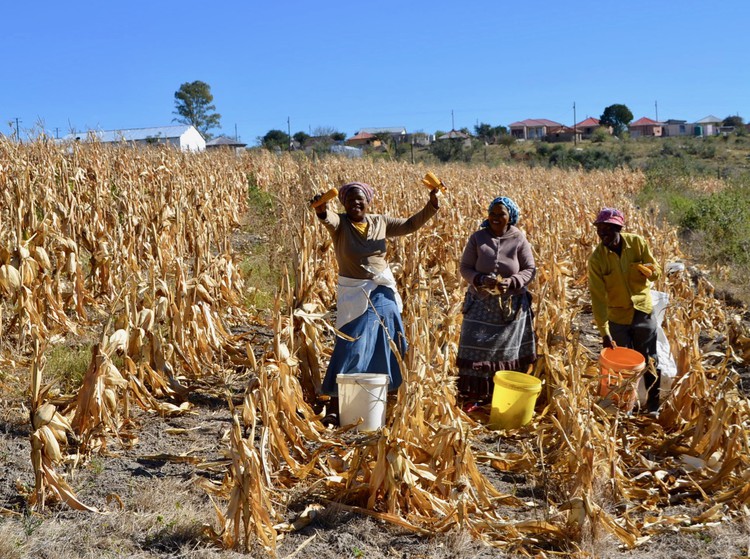Farmers in Eastern Cape village have to give their crops away
They have nowhere to sell their maize
About 35 maize farmers in Ngxingxolo Village, Mooiplaas, outside East London, say they can’t sell their harvest. They have been asking government for ten years to help find them a market.
The farmers buy their own seeds and chemicals and the Great Kei Municipality provides tractors. They are mostly grandparents raising their grandchildren, while the parents are in town seeking work.
Community leader Mbishe Dabi is 75. He says the elders in the village decided to combine their farms to form one project. “We divided ourselves into two groups. In my group we are 35 people: 12 men and 23 women,” explained Dabi.
Each farmer contributes R200 to buy seeds and chemicals. Planting started very late this year because the Great Kei Municipality only provided tractors in February.
“We usually plant before December. Then if we are late, we start early in January. But this year we started in the middle of February. The drought also didn’t make things easy for us, but most people managed to come up with good quality maize,” said Dabi.
Dabi said they are not making a profit because there is no one around them with the money to buy all the maize. “I’m raising eight grandchildren,” said Dabi. “I cannot expect my grandchildren to eat maize everyday.”
Another farmer, Nomasti Sitishini, said she produced ten tonnes of maize. She sells a 50kg bag of maize for R100 in her village. Sometimes she only sells four bags. Then she lowers the price to R20 a bag. When the maize gets old, she gives it away to family members and neighbours. She is raising five grandchildren. Their mother is working near East London.
But Sitishini is undaunted. “Next year, we are planning to develop and plant potatoes as well,” she said.
Harvesting started on Monday and will finish in August.
Mvusiwekhaya Sicwetsha, spokesperson for Eastern Cape Rural Development and Agrarian Reform MEC Mlibo Qoboshiyane, said he was not aware of the struggle facing the Mooiplaas farmers and promised to follow up. “It is our duty to assist our farmers in finding a market for them, especially if their product is good. We have offices in all towns and our offices are always open to all farmers,” he said.
The maize crop for 2017 for South Africa is forecast to be double that of 2016 and a large surplus of several million tonnes is predicted.
Support independent journalism
Donate using Payfast

Letters
© 2017 GroundUp. 
This article is licensed under a Creative Commons Attribution-NoDerivatives 4.0 International License.
You may republish this article, so long as you credit the authors and GroundUp, and do not change the text. Please include a link back to the original article.

